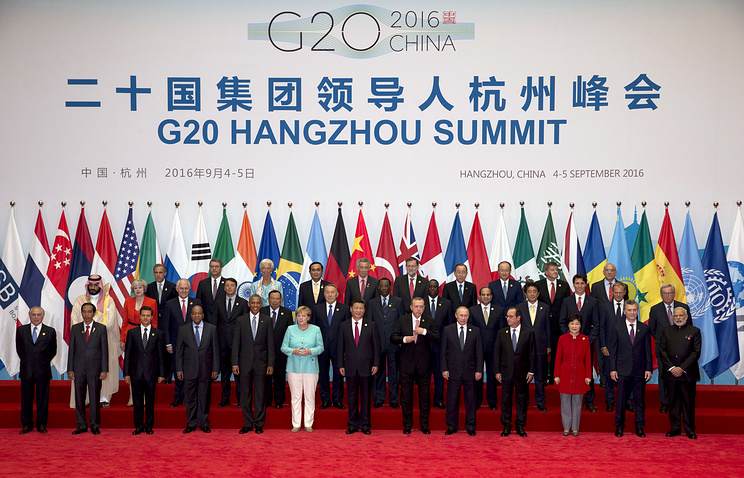The participants and guests of the G20 summit in eastern China’s Hangzhou rounded off their first working day with a concert, but many of them continued holding bilateral talks late on Sunday evening.
The high-ranking guests started arriving in Hangzhou on September 3 and in fact the G20 began its work a day before the summit. The “extra day” seemed to be not enough as before the official opening ceremony on Sunday the heads of state and international organizations started working in line with their busy schedule.
Host of summit takes the floor
At the first working session, Chinese President Xi Jinping said the G20 leaders should change the short-term policies for long-term ones. “Facing the current problems, we should be using innovative ways of development, which will become new growth drivers,” he said. “This year, we have agreed already the roadmap for development.”
“G20 countries should coordinate the overwhelming fiscal, monetary-credit and structural policies during reforms, should build up the international demand and offer a basis for global growth,” the Chinese leader said.
The G20 countries should become elements of reacting to crises of global management institutions, he said.
The role of the developing countries in the global governance system is growing, and the BRICS member-countries (Brazil, Russia, India, China, South Africa) are the driving force of this process, the president said at an informal meeting of the BRICS leaders ahead of the summit.
Bilateral meetings
Ahead of the summit’s opening the leaders began holding talks in line with the schedule and continued the discussions after the session. The G20 summit was a political debut for new UK’s Prime Minister Theresa May and Brazil’s President Michel Temer.
The journalists kept a watchful eye on the Russian and US delegations. Before the summit, there were rumors that Russian President Vladimir Putin and US President Barack Obama could hold talks. Last time the two leaders met at the Climate Conference in Paris in November 2015.
The meeting of Russian Foreign Minister Sergey Lavrov and US Secretary of State John Kerry on the sidelines of the summit came as a surprise. The top diplomats focused on the Syrian conflict. Later the representatives of both sides said some issues on cooperation in Syria were agreed.
Kremlin spokesman Dmitry Peskov later said that Putin and Obama briefly met at the summit and agreed to hold a meeting on the second day. A source in the Russian delegation said the US president had asked Putin for a separate meeting.
Almost all participants of the summit had a busy schedule of bilateral meetings. Besides economic cooperation the leaders discussed trade and investment, globalization, the Syrian conflict, the fight against international terrorism, the consequences of Brexit, the migration crisis in Europe and other regions, the reform of the International Monetary Fund (IMF) and oil price slump.
The G20 group unites Argentina, Australia, Brazil, Russia, the United Kingdom, Germany, India, Indonesia, Italy, Canada, China, Mexico, Saudi Arabia, Turkey, France, South Africa, South Korea, Japan, the United States and the European Union. G20 members account for 85% of the world economy and 80% of global trade.
